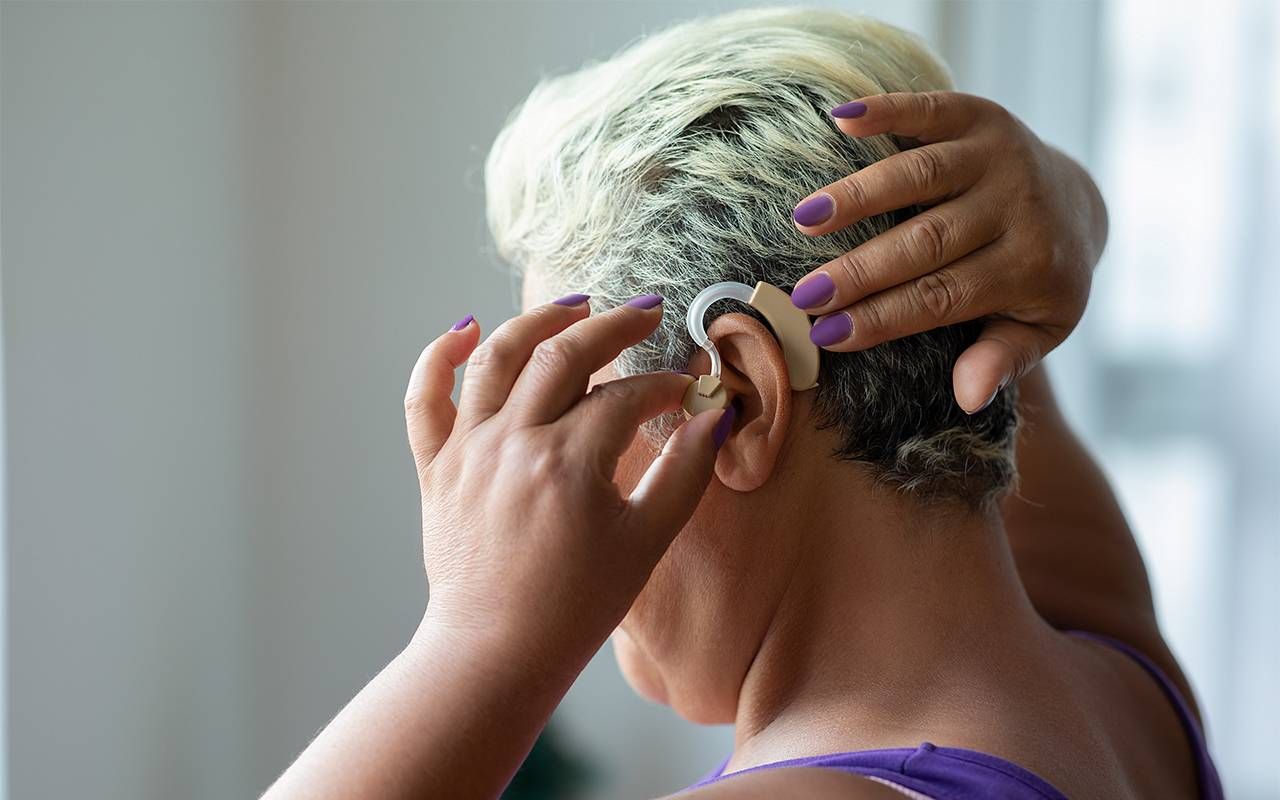When Auditory Processing Disorder Keeps You Isolated
There’s help available if you struggle to understand what other people are saying
For the second time, my 86-year-old father has decided to forego a standing monthly lunch date with a group of friends. He no longer enjoys these gatherings because, even with hearing aids, he can't understand a word anyone says — he may be experiencing a central auditory processing disorder (APD).

The American Speech-Language-Hearing Association refers to central auditory processing disorders as deficits in how one processes auditory information – what the brain does with what the ears hear. APD is commonly thought to be a neurologic issue from damage to the central auditory nervous system.
Other causes include long-term noise exposure, like being in loud work environments or delayed access to hearing aids.
However, Dr. Jay Lucker, professor emeritus at Howard University with an audiology practice in Reston, Virginia, notes that there are numerous types of APD, and they often involve other systems, such as executive functioning, attention, decision-making, and language processing.
In addition, APD could result from an accident, such as a traumatic brain injury, a disease process like multiple sclerosis, or an unaddressed childhood developmental issue. Other causes include long-term noise exposure, like being in loud work environments or delayed access to hearing aids.
Symptoms of this disorder might involve:
- Difficulty understanding spoken language in noisy environments
- Misunderstanding messages such as sarcasm or jokes
- Frequently asking people to slow down or repeat themselves
"Further, decoding issues are common, like switching one sound for another (bag for bug) or omitting sounds (star instead of start). Dr. Rachel Cohen, an audiologist in Southwest Florida, says that APD-related problems (think hearing words in the incorrect order or having difficulty understanding one person when there are many talkers in the room) often leave people with mental and listening fatigue and anxiety, resulting in a reduced desire to socialize.
While many consider APD most evident in noisy atmospheres, architecture can also have an impact. For instance, rooms with high ceilings and large windows cause sound to reverberate. For Dr. Sandra Gordon-Salant, a hearing and speech science professor at the University of Maryland, "places of worship can be difficult hearing environments."
In the words of Gail Whitelaw, Ph.D., clinical associate professor & clinic director of the Department of Speech and Hearing Science at The Ohio State University, "many people with APD have significant communication disorders that impact their work life, their social life, and their quality of life."
What to Do If You Have Symptoms
Rather than withhold social engagements, people with hearing and listening issues should seek a formal diagnosis and treatment. Whitelaw acknowledges that "APD is thought to be underdiagnosed as listeners with these types of concerns are told they have normal hearing and their concerns are dismissed."
The best place to start is with a standard audiological evaluation. Be sure to find an APD-literate audiologist who can perform a thorough examination.
Yet Whitelaw estimates that as many as 26 million American adults may experience APD or a similar disorder. The best place to start is with a standard audiological evaluation. Be sure to find an APD-literate audiologist who can perform a thorough examination.
While the standard hearing test focuses on the peripheral hearing system (outer, middle and inner ear), APD is related to the "ear to the brain" connection. The standard test serves as a foundational test for hearing, but it won't adequately challenge the auditory system to evaluate for APD.
"There is little correlation between hearing well in quiet and being able to hear effectively when background noise is present," says Whitelaw. Instead, she encourages using a self-assessment, such as the Adult Auditory Performance Scale (AAPS), with a battery of tests that check real-life listening skills.
Dr. Samira Anderson, an associate professor at the University of Maryland, has done extensive research into testing for APD. Besides behavioral tests, she uses electrophysiology to evaluate how the brain processes speech signals. She acknowledges the challenge in assessing APD in adults, "is it a hearing loss, cognitive decline, or both?"
How to Improve Understanding
Given the multiple types of APD, individuals should work closely with their audiologist to ensure that treatment aligns with their condition. For example, says Lucker, "one listening improvement program may improve the ability to focus on important spoken messages and filter out background noise. Still, it won't help with oversensitivity to sound."
Moreover, pursuing options that specifically address your issues will help ensure a practical course of treatment. One alternative may be hearing aids since they can help filter noise. Remote microphone technology can also be of benefit.
Being socially active is vital to feeling engaged and maintaining health.
Likewise, auditory training programs, such as Amptify, CAPDOTS, Acoustic Pioneer, and Word Success, may help train the brain to be better listeners. Treatment can also focus on one-on-one therapy training. Cohen typically works with patients for 12-14 weeks, depending on the protocol (such as the Buffalo Model Therapy or ARIA) used to address specific issues.
Environmental changes make a difference as well. For illustration, Whitelaw suggests supporting helpful two-way communication by reducing the distance between the speaker and listener, positioning oneself with the back to the wall and away from noise (such as in a restaurant), being able to see the speaker, and asking the speaker to talk clearly and rephrase, as needed.
Long-Term Impact of APD
Extensive research is being conducted at The Ohio State University to determine the impact of auditory processing on aging. Studies have documented that consistently wearing hearing aids for those who use them can delay decline or even improve cognitive function.
Correspondingly, being socially active is vital to feeling engaged and maintaining health. If you're having difficulty keeping up with conversations, understanding the punch line of a joke, or following directions, consider an evaluation for APD.
At last, my father decided that he'll only lunch with groups as large as four and in a restaurant that allows them to eat in a booth to contain the noise — this makes for more meaningful conversations and deeper connections.


